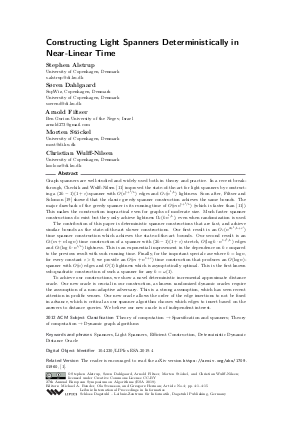LIPIcs.ESA.2019.4.pdf
- Filesize: 0.57 MB
- 15 pages

 Creative Commons Attribution 3.0 Unported license
Creative Commons Attribution 3.0 Unported license
























Feedback for Dagstuhl Publishing